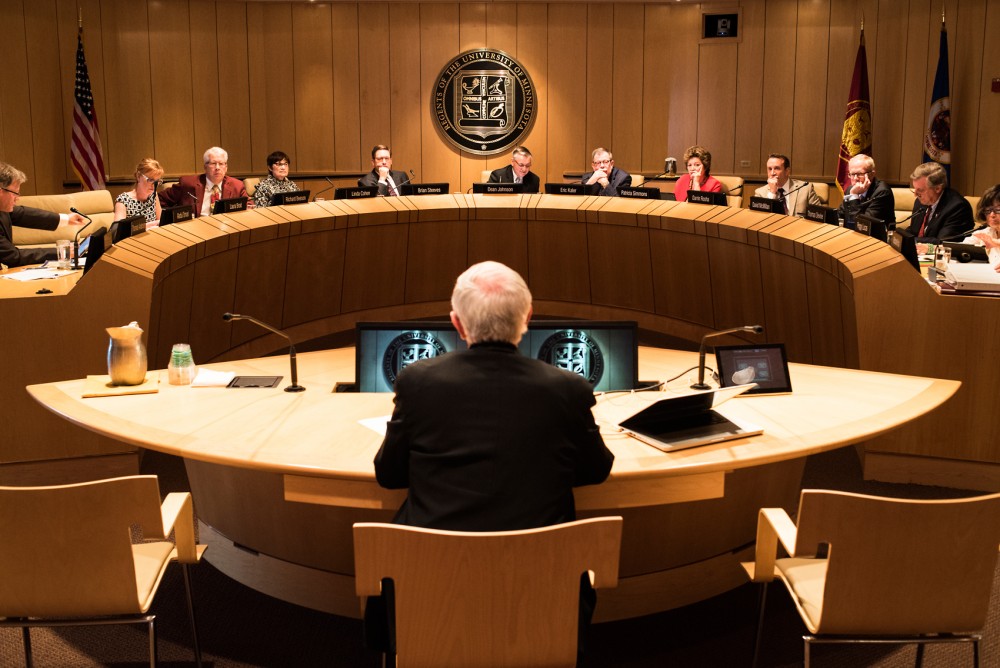The University of Minnesota’s Board of Regents voted Friday to demolish the grain elevators near TCF Bank Stadium to build a new track and field facility, but failed to decide where to move the sports bubble that will be displaced by the new track complex.
The board’s Facilities, Planning and Operations Committee voted 5-1 Thursday to demolish the 115-year-old elevators, saying the buildings’ risk of injury for urban explorers represents a liability to the University.
Regents also voted to allocate $13 million to build a new track and field facility in tandem with the Athletes Village Project, but couldn’t agree on where to relocate the recreational sports bubble the new facility would displace.
Regent Darrin Rosha voted against the demolition proposal Thursday and Friday, saying the community nearby should get more time to see if they can give the University money to preserve the structures.
The regents’ vote came amid pushback from community members.
The school hired third-party evaluators to assess if the abandoned buildings could be reused, but the University found few cost-effective options.
But opposition from the community means the school will consider preservation options for one or more of the elevators, including rebuilding them at a different site.
2017 state capital requests
Regents voted unanimously Friday to approve University President Eric Kaler’s recommendation for the 2017 budget requests to the state, which included over $245 million for infrastructure and laboratory upgrade projects.
Six-year capital plan
The Board voted unanimously Thursday and Friday to approve the University’s 6-year capital to enhance the Medical School and increasing statewide agricultural research.
The $1.6 billion plan would renovate and expand medical and health science facilities, construct and upgrade research and laboratory space for the College of Food, Agricultural and Natural Resource Sciences and the College of Biological Sciences.
2018-19 Biennial Budget Request
The University will ask the Minnesota Legislature for nearly $1.4 billion over the next two years once the legislative session convenes in January.
The school’s requests would fund efforts to improve student retention and graduation rates, grow Science, Technology, Engineering, and Math programming, keep tuition from rising for Minnesota students, among other goals.
The University will also request $8 million to supplement a loss of funding from UCare — a nonprofit health care insurer that used to provide financial support to the University — and $5 million in additional funding for the expansion of programming for the new Bell Museum and Planetarium on the St. Paul campus.
Regents reviewed University Kaler’s recommendations in September and voted to adopt the proposal at meetings Thursday and Friday.
Minnesota Public Employees Association
The Board’s Faculty and Staff Affairs committee voted Thursday to approve a collective bargaining agreement with the Minnesota Public Employee Association, which represents 52 police officers and sergeants on the Morris, Duluth and Twin Cities campuses.
Under the agreement, employees covered by the Association will get a one-time 0.5 percent lump sum of their salary by signing the contract and a 1 percent salary increase.
Certain employees can also get salary progression increases after working for long enough.
The new contract establishes processes for setting officers’ sick leave and vacation time, along with language to address time off to vote.
Negotiations on the contract started in February 2016, resulting in a tentative agreement in June. The union’s contract was ratified at the end of August and approved unanimously by regents Thursday and Friday.








